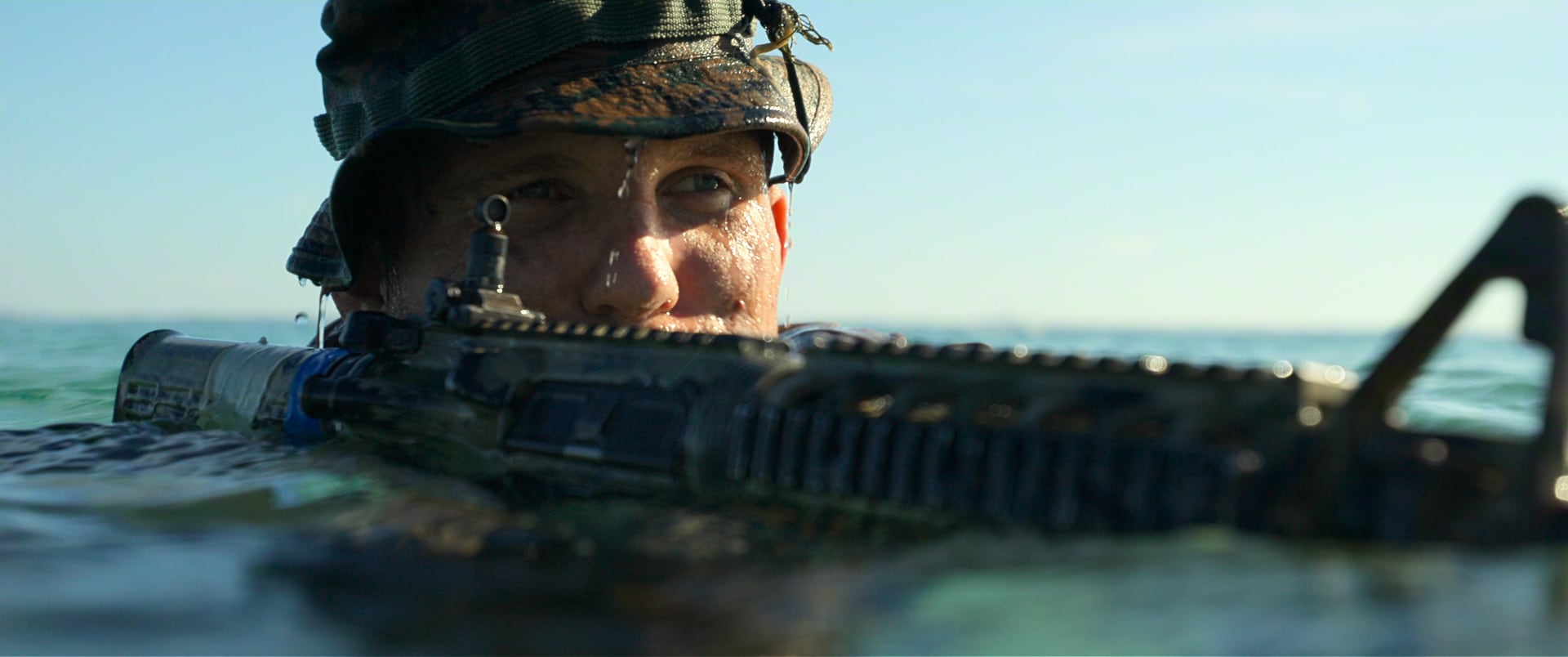You might assume that the grandson of a game-changing former chief of naval operations would join the Navy to carry on the family tradition, but no.
"It was actually because I saw Top Gun one too many times," James Zumwalt told Navy Times. But before he signed on to ROTC in 2000, his grandfather, retired Adm. Elmo Zumwalt, wrote him a letter about service.
"He said, there's a greater source of joy than happiness and that's the piece that comes from service to others," Zumwalt said in a Tuesday phone interview. "So basically he said, look, you don't have to join the military to serve. Just do something bigger than yourself."
With that in mind, the 34-year-old Zumwalt spent five years as an explosive ordnance disposal officer in the Navy. And now he's making a bid to represent his adopted home state of Florida in Congress, though it's just coincidence that he's also taking after his grandfather in that regard — the elder Zumwalt ran for a Virginia Senate seat in 1976.
Though a conservative Republican, Zumwalt said he has a lot of ideals in common with his grandfather, who made his name by appointing the first black admiral and the first female admiral in the Navy's history.
"Where he and I are absolutely aligned is, he didn't view the Navy as this big war machine made up of different parts," Zunwalt said. "He viewed and valued the dignity of each and every individual sailor, regardless of rank, color, creed, age, gender."
Zumwalt feels the same way about the American people, he said.
"It's about valuing the individual rights and the individual dignity regardless of what they look like or what gender they are," he said. "The way we protect that is through individual rights and smaller government. We just have a different way to get there, my grandfather and I."
Zumwalt was an ROTC student at Tulane University on 9/11, he said, and as the wars in Iraq and Afghanistan heated up, he figured out where he wanted to be.
"I started hearing about all the casualties happening from roadside bombs and then once I realized there were these teams that go out to diffuse them, I wanted in," he said.
But the community didn't make it easy for him, because of or despite his name.
"In EOD especially, in the special operations community, it is the last pure meritocracy," he said. "The best way to describe it is, if anything, it actually made it more difficult because from day one in dive school, they're giving you special treatment – just not the kind you want."
And though the higher-ups did recognize his name, he said, it was his physical features that linked him to his grandfather more than anything.
"The only way they could tell I was Admiral Zumwalt's grandson was I have ridiculously large eyebrows like he did," he said.
It was during training in Panama City and at Eglin Air Force Base that he also discovered a love for northwest Florida, deciding to come back and make his home there eventually.
"I just had to go to Iraq a bunch of times first," he said.
From lieutenant to representative
Zumwalt left the Navy in 2005, he said, after it became clear that the more he rose in rank, the farther away he'd be from the guys in the field.
So he took his skills to the Pentagon as a defense analyst, tracking al-Qaida bomb-making networks. Then his roommate decided to leave his job as a military legislative adviser to Florida's 1st District congressman, Republican Rep. Jeff Miller, and offered to throw Zumwalt's name in as a replacement.
"And I said, 'Gil, I thought we were friends. Not on Capitol Hill, never,' " he recalled. "Because they were all guilty until proven innocent in my mind, on Capitol Hill."
But Miller was the chairman of the House Veterans Affairs Committee and a member of its armed services committee, so Zumwalt figured he could do some good for his fellow vets and his community.
Then Miller announced he wouldn't run for reelection this year, and Zumwalt decided to take a shot at replacing him and making a change from the inside.
"I've realized that the biggest threat to this republic is not actually in the Middle East, it's in Washington," he said. "If that's where the fight takes me, that's where I'm willing to go."
He's up against seven other Republicans in the August 30 primary, including three veterans — all former Navy or Marine Corps pilots. But Zumwalt said that his recent, relevant experience in the War on Terror and on Capitol Hill gives him the edge.
"I've sat down with Benjamin Netanyahu's chief of staff in Israel, trained alongside the Jordanians, fought alongside Iraqi Kurds," he said. "We don't have time to get somebody up to speed because there's no substitute for experience when it comes to something like this."
And he's got a head start on the inner workings of Congress.
"I can be effective from day one not just protecting our military installations down in the district, but knowing who our friends are in northwest Florida and who our enemies are," he said. "I can't tell you how many times I've seen reps on Capitol Hill who are in their third or fourth year and they still don't know how everything operates."
He's also looking forward to joining veterans already serving in Congress, including Rep. Ryan Zinke, R-Montana, Rep. Duncan Hunter, R-Calif., and Sen. Tom Cotton, R-Ark., while inspiring his fellow veterans to get involved.
"I've already talked to about seven or eight other veterans who are now inspired the same way I was inspired by [former Republican congressman] Allan West and Tom Cotton," he said. "Even if half of us win, that's four more veterans in Congress."
In no particular order, here are five pieces of legislation at the top of his list:
- More alternative treatments and therapies for veterans suffering from mental health issues.
- A more flexible post-9/11 GI Bill that allows veterans to enroll in trade and vocational training as well as higher education.
- Professional credentialing for veterans based on their military experience.
- Making small business loans easier for veterans by raising the limit that credit unions are allowed to lend through an exemption for veterans.
- A congressional vote on whether American troops should be fighting in Iraq and Syria.
Meghann Myers is the Pentagon bureau chief at Military Times. She covers operations, policy, personnel, leadership and other issues affecting service members.





